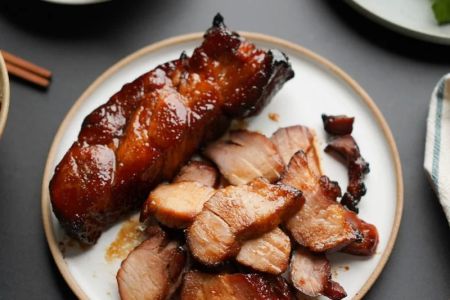How to Open a Chinese Takeout Restaurant in the United States
Opening a Chinese takeout restaurant in the United States can be a rewarding and exciting venture, especially given the growing demand for convenient, flavorful meals. If you've ever considered entering the restaurant business and love Chinese cuisine, you're in the right place. I’m here to guide you step by step through the process, share tips, and even tell you some stories about challenges and successes I’ve encountered along the way.
1. Understanding the Market and Demand
The first thing you need to know is that the demand for Chinese food in America is huge. Chinese takeout has become a staple in many households, whether it's for a quick dinner after a long day or a late-night snack. However, the competition is fierce, and understanding the market is critical. Research your local area thoroughly. Visit other Chinese takeout spots and analyze their offerings, pricing, and customer service. Try to identify any gaps in the market that you could fill.
2. Choosing the Right Location
Location is key when it comes to opening any restaurant, and this is especially true for a Chinese takeout restaurant. You need to find a location that is easily accessible and visible to potential customers. A location near residential areas, office buildings, or college campuses can be an excellent choice. These are places where people are likely to order takeout regularly. If you're on a budget, look for areas with high foot traffic but lower rent prices.
3. Setting Up the Right Menu
Your menu is one of the most important elements of your restaurant. It should feature a variety of popular Chinese dishes while also offering some unique options that set you apart from competitors. Consider including traditional favorites like General Tso’s chicken, sweet and sour pork, and fried rice. Don’t forget to cater to dietary restrictions like gluten-free, vegetarian, or vegan options. In my experience, creating a signature dish can really help you build a loyal customer base. For example, a spicy noodle dish or a unique stir-fry can quickly become your restaurant's standout item.
4. Obtaining the Necessary Licenses and Permits
Before you start cooking, make sure you have all the necessary licenses and permits. These vary by state, but typically, you will need a food establishment license, a business license, and a health department permit. I remember being overwhelmed by the paperwork, but once I had all the documents in hand, it was smooth sailing. Don’t skip this step – operating without the proper permits can result in fines or even shutdowns.
5. Sourcing Quality Ingredients
The quality of the ingredients you use can make or break your restaurant. Establish relationships with reliable suppliers who can deliver fresh, authentic Chinese ingredients. If possible, source directly from local suppliers or import from China for specialty items. Over the years, I’ve built strong partnerships with suppliers, ensuring that my dishes always taste authentic. One tip: Don’t compromise on quality. Customers will notice, and they’ll appreciate the difference.
6. Hiring and Training Staff
One of the most important aspects of running a restaurant is having a great team. Hire experienced chefs, particularly those who specialize in Chinese cuisine, and train your front-of-house staff to provide excellent customer service. When I first started, I found that my kitchen staff’s expertise in Chinese cooking made all the difference. They could replicate those intricate flavors, and that’s what kept customers coming back. For front-of-house staff, focus on efficiency and friendliness. The faster the service, the happier your customers will be.
7. Marketing and Building Your Brand
Building your brand is essential for attracting customers. Invest in a website and social media presence to showcase your menu, special deals, and customer reviews. Local SEO is also incredibly important. When people search “Chinese food near me,” you want your restaurant to appear at the top of the search results. Start a Facebook page or Instagram account, post mouthwatering photos of your dishes, and encourage customers to leave reviews. In the beginning, I offered a special discount for online reviews, which helped build momentum. Word-of-mouth and online reviews are powerful tools for growing your restaurant’s reputation.
8. Creating an Efficient Takeout System
Since you're opening a takeout restaurant, efficiency is crucial. Streamline the ordering process, whether it’s through an online ordering system, phone orders, or in-person pickups. Make sure that your packaging is functional and attractive. My first attempt at takeout packaging was a disaster – the food leaked everywhere. After a few trial runs, I found the perfect containers that kept the food fresh and intact during delivery.
9. Customer Service and Building Loyalty
Customer service should always be a top priority. Be responsive to customer feedback and resolve any complaints promptly. Implementing a loyalty program is another great way to keep your customers coming back. For instance, offer a free dish after every ten orders or a discount for referrals. When I introduced my loyalty program, repeat customers began to increase, which helped stabilize my revenue. Happy customers are your best advertisement.
10. Managing Finances and Scaling the Business
Running a restaurant involves a lot of financial management. Keep track of your expenses, such as ingredients, labor, utilities, and marketing. Create a budget and stick to it. As your restaurant grows, consider expanding your offerings or even opening new locations. However, scaling requires careful planning, and it's important to maintain the same level of quality and customer service as you grow. When I opened my second location, I made sure to implement the same operational systems that worked so well in my first location.
My Journey: A Real-Life Example
When I first opened my Chinese takeout restaurant, I faced several challenges. One major hurdle was perfecting the recipe for sweet and sour sauce. After many attempts, I finally found the right balance of tangy and sweet. The customers loved it, and that was a turning point for my business. I also remember one cold winter night when a delivery driver mistakenly gave a customer the wrong order. The customer called to complain, and I immediately sent a replacement order along with a gift card. That customer became a loyal regular after that. Small mistakes can be opportunities to improve your business.
Conclusion
Opening a Chinese takeout restaurant can be a fulfilling and profitable business, but it requires hard work, dedication, and attention to detail. From choosing the right location to perfecting your menu and providing excellent customer service, every aspect of the process plays a critical role in your success. Stay focused, be patient, and always strive for quality. With the right strategy, you can build a restaurant that becomes a beloved local favorite.






![Top Chinese Restaurants for Authentic Cantonese Cuisine in [Your City]](https://img.gochinarose.com/d33/2507/4157910400_450x300.webp)
